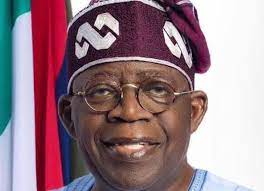The Nigerian government said Wednesday that it will continue to borrow within manageable limits and per the country’s debt sustainability framework while refuting allegations of overborrowing from concerned citizens.
In a statement issued Wednesday in Abuja, the Nigerian capital, the Federal Ministry of Finance said the most populous African country has adopted a structured, forward-looking approach that facilitates comprehensive financial planning and avoids the inefficiencies of ad-hoc or reactive borrowing practices.
The statement responded to reactions from citizens questioning a recent request from President Bola Tinubu to the National Assembly for the approval of the 2024-2026 external borrowing rolling plan, also known as the Medium-Term Expenditure Framework, under both the Fiscal Responsibility Act 2007 and the Debt Management Office Act 2003.
Tinubu has requested the National Assembly’s approval to secure external loans of 21.5 million U.S. dollars and 15 billion yuan, along with a grant of 65 million euros, as part of the Nigerian government’s proposed external borrowing plan. The proposed borrowing will be sourced mainly from the country’s development partners, including the World Bank, African Development Bank, French Development Agency, European Investment Bank, JICA, the Export-Import Bank of China, and the Islamic Development Bank.
“This strategic method enhances the country’s ability to implement effective fiscal policies and mobilize development resources,” the official statement said. “The plan outlines the external borrowing framework for both the federal and sub-national governments over three years, accompanied by five detailed appendices on the projects, terms and conditions, implementation period, and others.”
The borrowing plan does not equate to actual borrowing for the period or an automatic increase in the nation’s debt burden, said the statement, noting that the actual borrowing for each year is contained in the annual national budget. In 2025, the external borrowing component is 1.23 billion dollars.
According to the statement, the nature of the rolling plan means that borrowings are split over the period of the projects, with a large proportion of projects in the 2024-2026 rolling plan having multi-year drawdowns of between five and seven years, which are project-tied loans.
It added that these projects cut across critical sectors of the economy, including power grids and transmission lines, irrigation for improving food security, fiber optics networks across the country, fighter jets for security, and rail and road infrastructure.
XINHUA

